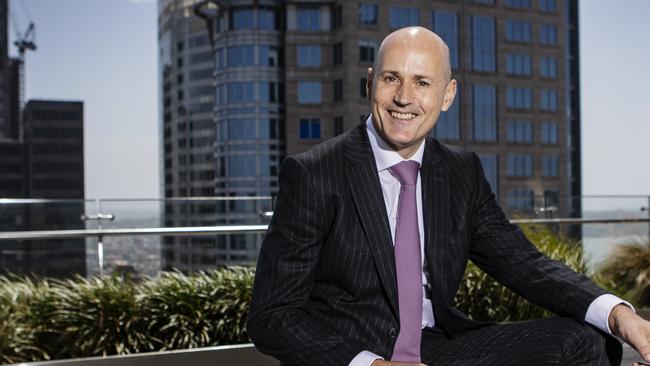2019 CEO Survey: Pat Reagan, QBE
Lower interest rates could mean higher insurance costs over time, warns QBE’s Pat Reagan.

Every year The Australian’s John Durie asks some of the biggest names in Australian business five key questions about what’s coming in the year ahead.
Here, in his own words, is what QBE CEO Pat Reagan sees ahead in 2020.
Read more from the 2019 CEO Survey.
How is your company affected by low-interest rates and what is needed to boost the economy?
Insurers are significant institutional investors and low rates typically mean lower returns on our investments. That’s challenging and it doesn’t look like changing anytime soon, and so we’re responding to that in terms of how we invest and the types of investment vehicles we use. But this could also potentially mean higher insurance costs over time too.
More broadly, on the economy, I think governments will soon need to invest more, both here in Australia and elsewhere around the world. This is, after all, a global challenge as much as it is a domestic one. Here in Australia, I would support the government investing in those parts of the economy where we need to be creating jobs and opportunities for young people.
The tech and innovation space is an obvious example and one that we have underinvested in for too long. There is an enormous opportunity for Australia here. We’ve also significantly underinvested in renewable energy over many years, despite our potential to become a renewable energy superpower. There are abundant opportunities for Australia in this sector of the economy.
What is the impact of government regulations on your company including those applying to the financial sector?
The financial services sector generally is already heavily regulated and the royal commission made a number of recommendations as to how those regulations could be strengthened and enhanced. We support that and our approach has been to ensure that we are acting on those immediately, rather than waiting for legislation or regulation to come through.
What percentage of company revenues are spent on research and development and how is your company using technology to improve performance?
I think it is pretty clear that no industry is immune from digital disruption and that’s certainly true for insurance. We are very focused both on how we integrate and leverage technology solutions into our business better. Things like artificial intelligence and robotics are helping speed up claims handling and strengthen our fraud detection capabilities, for example. We’re using data better and exploring more ways that we can better capture that to deliver more tailored customer solutions. For example, there is huge potential in the rapid growth in sensors and internet-connected devices, whole ecosystems that with the right governance, these could potentially be used to provide better insights that enable us to deliver better solutions for our customers’ needs.
What are the three major policy issues facing the country and what should be done about them?
● Climate change is a global challenge that poses a significant risk to our customers and our business. We have to meet our emissions reduction commitments under the Paris Agreement, and we must continue to invest in adaptation and mitigation measures as climate-related risks continue to manifest. We also have the opportunity
to do so much more on the renewable energy front;
● We keep missing the boat on tax reform. Tweaks around the edges are good, but to ensure we remain competitive, to stimulate investment and growth and to attract foreign investment, I think we need to think seriously about our tax system and the widening gap between Australia and many of our OECD peers when it comes to corporate tax; and
● Relatedly, we should use the tax system and R&D incentives to unlock Australia’s potential as a technology and innovation hub in our region. I think we have a real opportunity, but it will take investment and incentives. We could eventually be competing with places like Silicon Valley or Tel Aviv. But we have to seize the opportunity now or we will miss the boat.
What are the major impediments to long-term growth facing your company and what can or is being done about them?
Insurance is a bit more resilient to slowing economic growth than some industries, but the flagging economic conditions here and around the world do weigh on our business and on our prospects for growth. While I understand the focus on monetary policy in response to slowing conditions, rates are now at historic lows and I think we now need to see the focus shift to fiscal stimulus. In terms of our own business, in the age of disruption where customers have an ever-expanding pool of choice, we also know that our growth will in large part depend on our ability to disrupt ourselves. That’s why we are accelerating our investment in technology solutions and innovating in terms of how we use data, AI and explore the potential of the internet of Things to deliver better customer outcomes.



